ASEE’s EOP-MGP funds teams of educators pursuing new approaches to integrating sustainability into curricula. In May 2025, ASEE announced the 24 faculty teams that were awarded EOP mini-grants for Cohort IV. Combined with Cohorts I, II & III, ASEE would like to thank the 67 teams dedicated to supporting sustainability in engineering education.
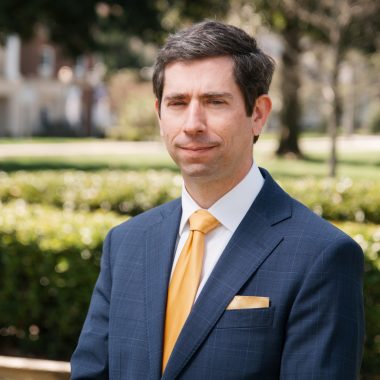 Anderson University
Anderson University
Jonathan Maier, Team Lead
Project Overview: At Anderson University, our students take seriously our commission to be good stewards of the natural environment, and to serve society through meeting the engineering needs of our modern world. Our proposal is to utilize the EOP Framework in a three-phase process to revise our curriculum. In the first phase, we will systematically analyze the learning outcomes of each current course offered, identifying which EOP core learning outcomes we are already teaching, and which missing outcomes map best to each course. Each course’s syllabus will then be revised accordingly to include the relevant EOP outcomes. This will be done for each engineering course, from the freshmen through senior levels. In the second phase, we will look for synergies in and across single courses, in an effort to introduce as many of the EOP advanced learning outcomes as will be feasible. In the third phase, we will introduce elective courses specifically focused on EOP concepts, such as a Design for Sustainability course. Finally, we will incorporate evaluation of our performance in teaching each EOP learning outcome into our yearly assessment process, ensuring that we continually improve our efforts.
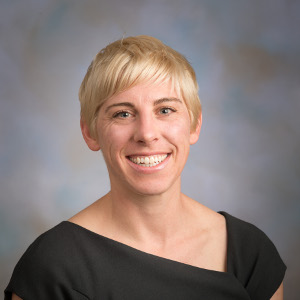
Colorado State University
Ellison Carter, Team Lead
Project Overview: We propose transforming traditional environmental engineering curricula through visual storytelling methods—comic books, graphic novels, and interactive card decks—to enhance sustainability education aligned with the EOP Framework. This innovative approach integrates systems thinking, environmental literacy, and collaborative problem-solving into courses, making complex sustainability concepts accessible and engaging. Success will be measured by improved student comprehension, retention, and enthusiasm, particularly benefiting diverse and neurodivergent learners. Institutional alignment with ongoing campus and curricula initiatives will ensure inclusive educational impacts, fostering equity in engineering education. Our pilot will inform the development of an AI-enabled platform empowering educators to create customized sustainability-focused materials. Continuous feedback from a community of practice will guide iterative improvements, ensuring scalability and long-term curricular integration.
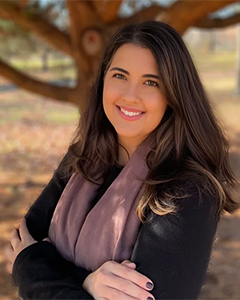 Drexel University
Drexel University
Fernanda Campos de Cruz Rios, Team Lead
Project Overview: This initiative proposes a sustainability roadmap for civil, architectural, and environmental engineering programs at Drexel University, using the EOP Framework to embed sustainability and justice across students’ academic journey. The roadmap introduces sustainability early through shared introductory courses, strengthens competencies in program-specific technical courses, and culminates in mastery via capstone projects. It addresses a current gap in sustainability and social justice education and aligns with DEIJ goals by incorporating inclusive, community-focused content. A faculty taskforce will co-create assignments and course materials, ensuring consistency and curricular continuity. Public-facing video lectures and a shared resource database will expand the initiative’s reach across the College of Engineering. Sustainability is defined here as creating equitable, accessible, and just solutions that enhance quality of life for all. The proposal builds on Drexel’s limited sustainability programming in engineering by driving coordinated, systemic change at the departmental level. Success will be measured by the number of courses revised, faculty engagement, and student competency in sustainability and justice. Broader impacts include increased environmental literacy, enhanced career readiness, and strengthened recruitment through a clear and compelling sustainability focus across the curriculum.
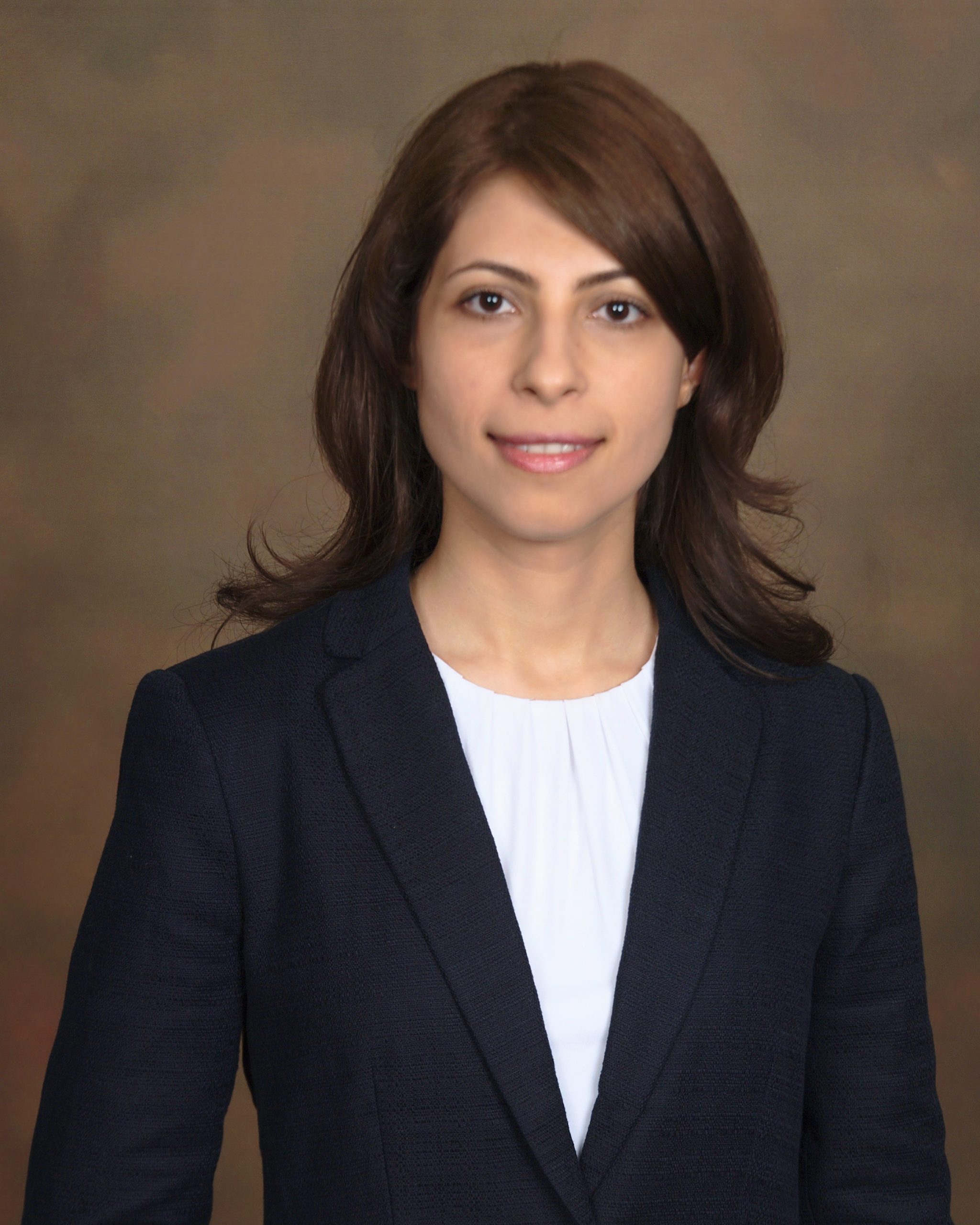 George Mason University
George Mason University
Shima Mohebbi, Team Lead
This project will develop a simulation-based game framework to enhance engineering students’ skills in systems thinking, trade-off analysis, communication, collaboration, and decision-making for a sustainable future. Sustainability is a multi-faceted concept addressed through diverse approaches in research and practice. The proposed project builds on Dr. Mohebbi’s interdisciplinary research and supports the newly launched Sustainable Systems Engineering minor in the College of Engineering, open to all undergraduate students at GMU. It also expands upon the multidisciplinary initiative, “Converging Sustainability, Social Justice, Systems Engineering, and Community Engagement (S3&C),” which received a Curriculum Impact Grant from GMU’s Office of the Provost in 2023. The innovative simulation scenarios will be integrated into recently revised courses, connecting conceptual frameworks with methodologies and implementation. These courses will enable students to integrate sustainability concepts and apply them to campus sustainability projects under Mason’s Living Labs Initiative. Mason’s Institute for a Sustainable Earth will promote curricular efforts through its website and newsletter to drive broader adoption and engagement. Dr. Mohebbi will also leverage her existing social networks (X, LinkedIn, YouTube) to share project outcomes with a wider audience at IISE and INFORMS.
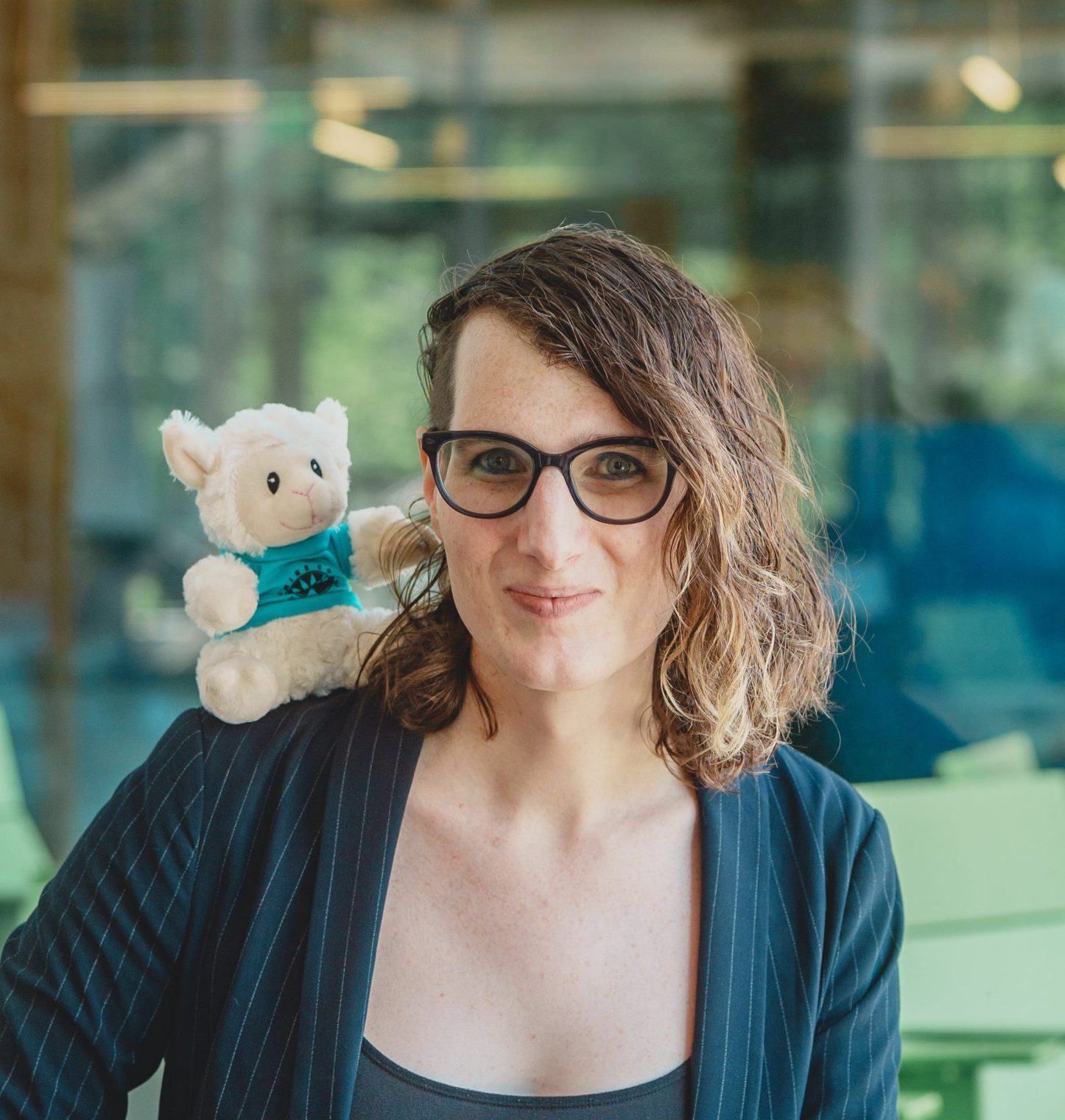
Hampshire College
Juliet Johnston, Team Lead
We are building a yearlong, multi-course project centered around graywater reuse. Instead of having students perform a bunch of small, unconnected projects across an array of classes, our graywater reuse project will unite multiple classrooms. This will provide students with time to deep dive into sustainability by contextualizing each class within graywater. The goal is to explore how different types of reactors (sand, biochar, suspended microbial communities, and attached microbial communities), can pre-treat graywater before releasing into an environment. The courses include General Chemistry, Microbes on the Farm, Bioinformatics, and Environmental Engineering Principle all which help understand how the chemical composition, microbial communities, and engineering decisions can impact graywater reuse on campus. We will work with graywater systems on our campus, The R.W. Kern Center and The Hitchcock Center for the Environment. In the long term, we intend to expand these types of multi-course projects based on student feedback and try to capture a wider breadth of STEM courses to collaborate across.
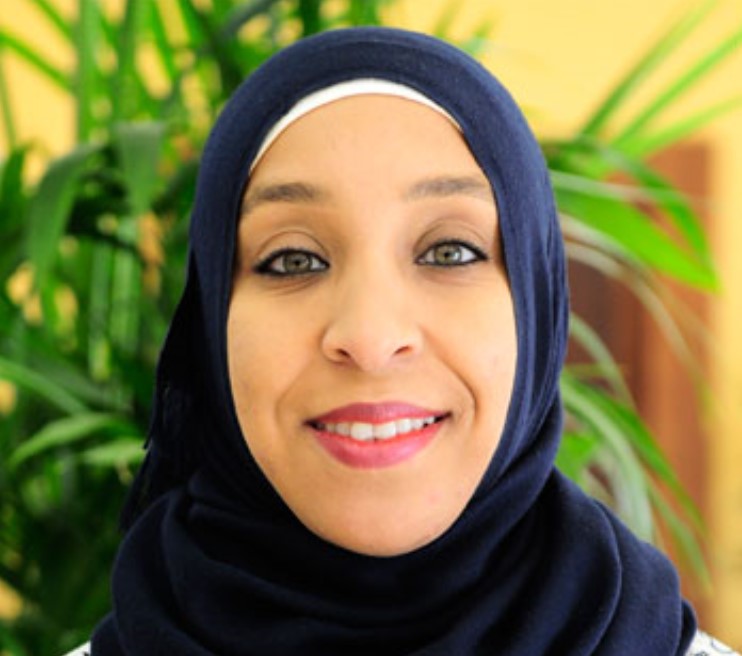 Houston Community College
Houston Community College
Reem Salim, Team Lead
Project Overview: The Solar Power Greenhouse project enhances the Electric Circuits curriculum by integrating a real-world renewable energy design challenge. New CANVAS materials will introduce students to renewable energy sources (RES) and grid integration, supported by hands-on lab experiments in the Electric Circuits Lab. This interdisciplinary, project-based model promotes sustainability, technical skill development, and environmental awareness. Students will design a solar-powered greenhouse, analyzing load requirements and selecting components like solar panels and battery storage while considering environmental and economic impacts. Working in diverse teams, students will build leadership and collaboration skills. The project concludes with the construction of a functional, accessible prototype on campus. These curriculum changes will serve as a model for interdisciplinary, project-based learning that can be shared across institutions and tailored to diverse student populations.
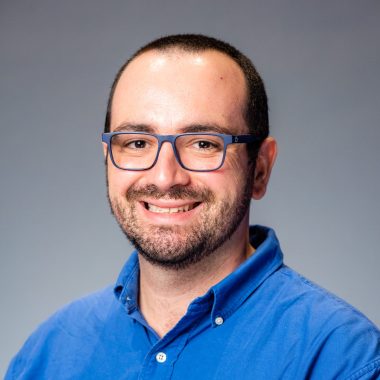 Howard University
Howard University
Cristiano Reis, Team Lead
Project Overview: Our proposed initiative will embed the EOP Framework throughout the Chemical Engineering curriculum at Howard University, aligning core course projects with sustainability. Early classes (such as Introduction to Engineering) will emphasize systems and critical thinking through project-based assignments. Mid-level courses, like Heat Transfer, will then incorporate design elements, allowing students to practice analysis of real processes. By the time they reach our senior Process Design sequence, students will be ready to integrate Green Chemistry principles and conduct basic life cycle assessments (LCA) and apply established practices like careful materials selection. In doing so, students will move from foundational concepts to advanced, hands-on projects that reflect real-world engineering challenges. We will leverage partnership with established industrial partners in the department, as well as national labs (e.g., NREL) for guest lectures and external reviews to ensure our curriculum remains both rigorous and relevant. Success will show up in graduates who can create environmentally sound solutions.
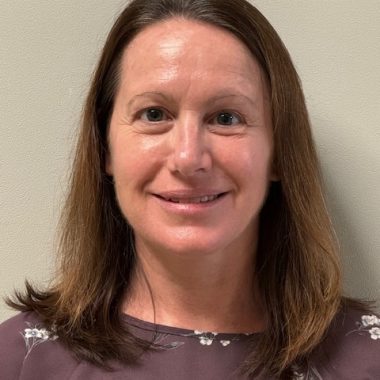 Mercer University
Mercer University
Natalia Cardelino
Project Overview: Mercer’s Engineering curricula currently consists of general math, science and engineering courses for a students’ freshman and sophomore year, and specific engineering concentrations for their junior and senior years. Currently, a few classes address sustainability at the upper levels, but the core classes of the first two years would be far improved if items of the EOP Framework were incorporated. This grant proposes implementing varying aspects of the framework into two courses. Intro to Engineering Design is a class that all engineering first-year students take that focuses on teaching the engineering design process through two main projects. These projects will be modified to teach critical thinking and material selection skills within the framework of sustainability. During their sophomore year, students will build on this knowledge through two modules incorporated into a required sophomore-level Statics and Solid Mechanics class. Upon completion of the modules in both these classes, students will be given a survey to assess their understanding of the EOP Framework. These courses will lay the foundation to allow for an expansion of sustainable curricula. By their senior year, students will have the resources to incorporate sustainability into their senior design projects and be better prepared for engineering careers.
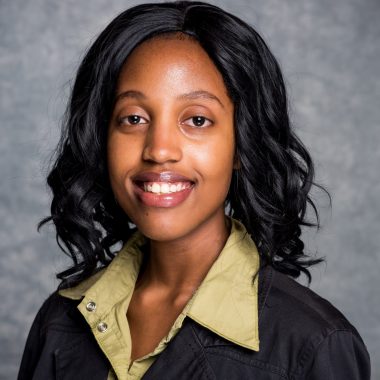 Missouri University of Science and Technology
Missouri University of Science and Technology
Sharon Uwanyuze, Team Lead
Project Overview: This initiative uses the EOP Framework to expand sustainability education in engineering through a newly launched course, “Environmental Aspects of Metals Manufacturing”, and a broader Sustainability Learning Pathway at Missouri S&T. The course emphasizes systems thinking, circular economy, and eco-audits while engaging students in field trips to foundries and recycling centers to see real-world applications. I plan to formalize partnerships for internships and incorporate EOP-aligned outcomes in senior design advising, encouraging students to consider environmental and social responsibility from both client and producer perspectives. These efforts will be scaled through cross-departmental collaborations and integration into core courses, including the large-enrollment” Metallurgy for Engineers” course. Success will be measured by increased student awareness, engagement in sustainability projects, and sustained curricular transformation. The project advances our institutional DEIJ goals by exposing students to ethical and inclusive decision-making frameworks and offering experiential learning to all students regardless of background. With strong institutional support and existing momentum in sustainability programming, this initiative is both timely and scalable, building a foundation for long-term educational impact in our college of engineering.
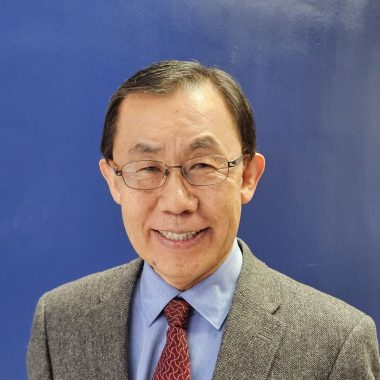 Morgan State University
Morgan State University
Seong Lee, Team Lead
Project Overview: We propose integrating sustainability into Morgan State University’s engineering curricula by aligning with the ASEE EOP Framework and fostering collaboration between Industrial & Systems Engineering and Civil & Environmental Engineering. Three existing courses— IEGR 572, IEGR 439, and CEGR 470—will be revised to include renewable energy, resource efficiency, green building design, and sustainability tools. Two new interdisciplinary courses—Sustainable Energy Engineering Systems and Intro to Urban Sustainability—will launch in 2025/2026, equipping students with the skills and behaviors needed to tackle real-world sustainability challenges. Students will gain hands-on experience through field trips to LEED-certified buildings and group projects on environmental and social justice, building critical thinking and communication skills. Faculty will apply interdisciplinary methods, and industry partners will benefit from graduates ready to meet sustainability needs. As Maryland’s Preeminent Public Urban Research University and largest HBCU, Morgan prioritizes DEIJ and sustainability. This initiative supports existing efforts like the Center for Equitable AI and Community Sustainability Engagement Program, reinforcing Morgan’s mission to deliver inclusive, sustainability-focused education. School of Engineering leadership will be engaged to ensure alignment with institutional goals and long-term impact.
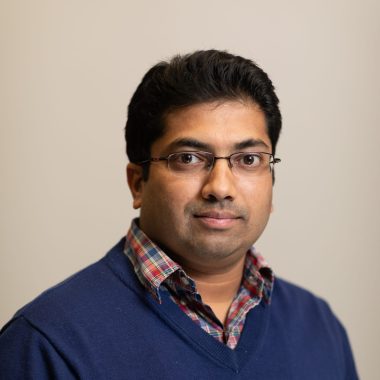 New Jersey Institute of Technology
New Jersey Institute of Technology
Ashish Borgaonkar, Team Lead
Project Overview: NJIT has always incorporated topics of sustainability into engineering courses, programs, and research. Our introductory Fundamentals of Engineering Design course (FED101), that is required for all engineering students, also includes sustainability-based topics – Societal Impact of Engineering and Inclusive Design. This initiative will utilize a three-pronged transformative approach to magnify sustainability concepts throughout the engineering curriculum. The focus is on engaging students early in their studies, while addressing all 9 topics of the EOP framework. Our three-part efforts consist of 1) expanding on the two existing FED101 modules; 2) establishing an engineering sustainability-focused minor; and 3) engaging students in sustainability seminars. FED101 enhancement builds on pilot work done by the PIs in their sections and will be expanded to all sections engaging 700 first-year students. The Engineering Sustainability minor will leverage existing coursework and explore new courses. Sustainability seminars will be offered once a semester to benefit all engineering students. This effort will engage 15+ faculty members to transform learning experience throughout the college.
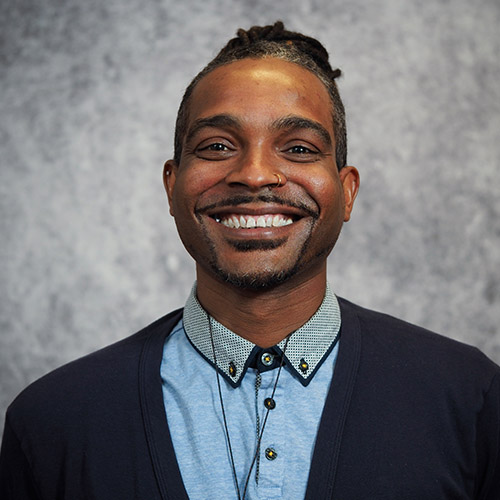 North Carolina State University
North Carolina State University
Cameron Denson, Team Lead
Project Overview: this project will use the EOP framework to develop 3 modules, incorporating learning outcomes related to Environmental Impact and Design, Social Responsibility, and Communication and Teamwork. The project will incorporate a cross-disciplinary approach to engineering solutions, implementation, and implications. Project-based, hands-on learning activities will be included in the modules to achieve EOP learning outcomes. The Online Masters program for Engineering Education at N.C. State University will incorporate these modules into the following courses: Sustainability and Open Access Application in Engineering Education (Environmental Impact and Design), Teaching Pedagogy for Service-Based Engineering Design Challenges (Social Responsibility), and Field Experiences in Engineering Education (Communication and Teamwork). The first 2 courses are designed to be completed in the first half of the program, and the Field Experiences course will culminate in an international capstone project. The goal of this project is to create a community of practice within our Masters program, where sustainability is a prominent and enduring focus. These modules will be cotaught by the instructors of each respective course, ensuring that students engage with content and activities that enhance their understanding of sustainability from various perspectives.
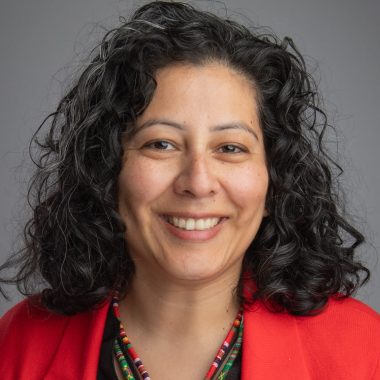 NYC College of Technology
NYC College of Technology
Melanie Villatoro, Team Lead
Project Overview: City Tech has three major groups working towards DEIJ efforts on campus and the administration is supportive of this project. The Department of Construction Management and Civil Engineering Technology was recently awarded funds to procure laboratory equipment as part of a CUNY Green Economy Initiative. The EOP-MGP grant will support curriculum development efforts to incorporate sustainability focused learning outcomes in alignment with this Initiative. The project team will use the EOP framework to develop one new course targeting advanced learning outcomes and modify four existing courses targeting core learning outcomes. The topic areas we will focus on include environmental literacy, social responsibility, environmental impact assessment, materials selection, and design. These changes will be implemented in the curriculum and become a permanent part of the program. The EOP framework will be integrated in our ABET self-study therefore we will continuously refer to the topics in the framework and stay current with ASEE updates. The proposed project will impact all the students in our program by understanding the significance of sustainability, the history and the future with respect to engineering. Our graduates will be better prepared for industry demands and more importantly prepared to make the decisions in their professional practice that impact society’s future. Once fully implemented, we will impact approximately 300 students per year from our major.
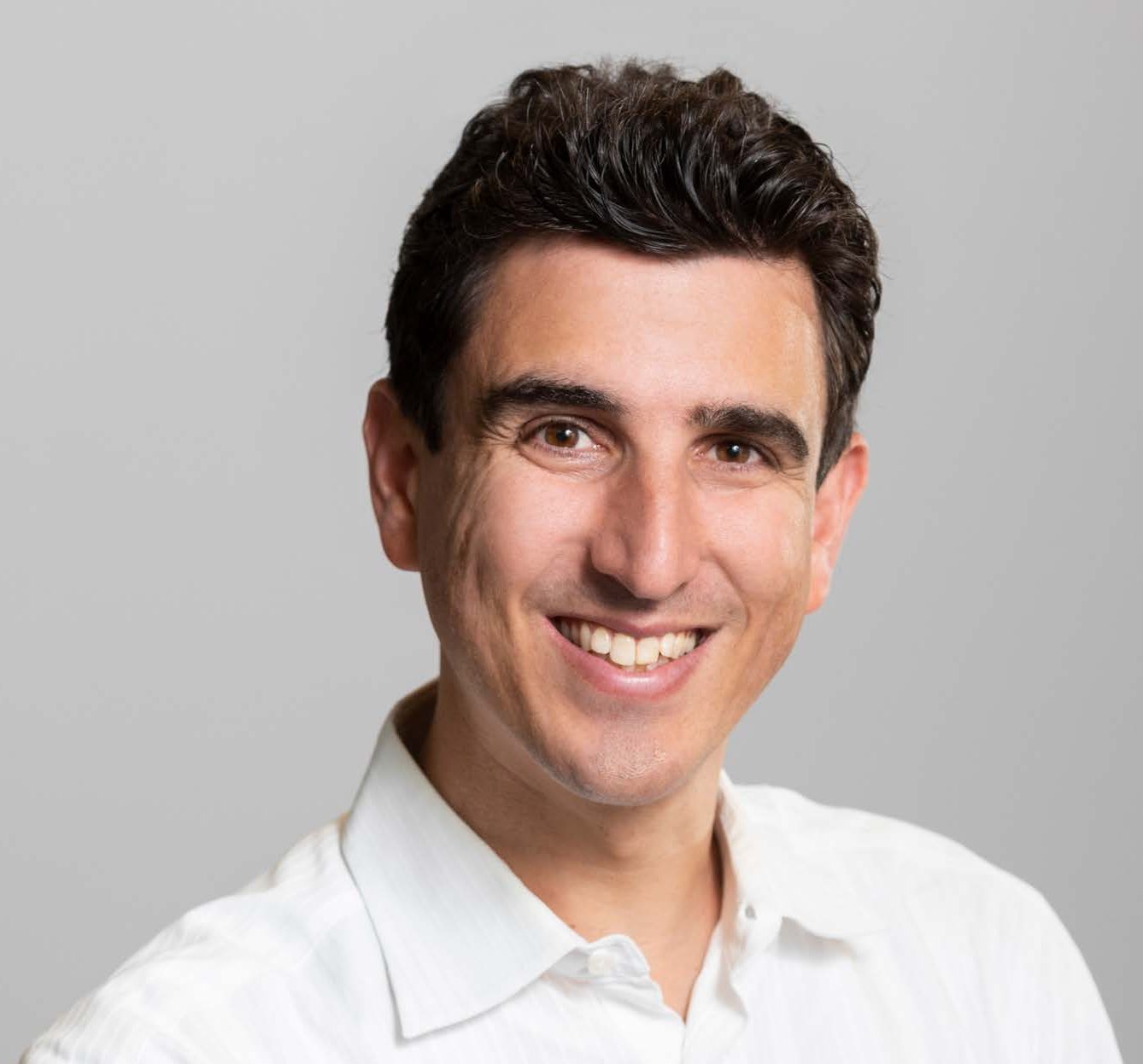 Olin College of Engineering
Olin College of Engineering
David Shuman, Team Lead
Project Overview: Olin’s Engineering for Everyone vision is that engineering education must be open to everyone and that engineering as a profession must serve everyone. Olin’s College as a Living Lab initiative works towards this vision by positioning Olin as an experimental testbed for reinvention and sustainability. We hope to foster a community centered around caring, well-being, humility, reciprocity, and individual and collective action for social and environmental justice. Olin teaches sustainability in many courses, but we can improve the cohesiveness of the perspectives across the curriculum and expand the scope to touch all programs. Our team hosted a January 2025 workshop, attended by 11 faculty and 6 staff members, where we identified three integration themes that align with the EOP framework and are implementable across multiple courses in the next year. First, towards social responsibility, we will develop and implement career identity and reflection modules. Second, towards environmental impact assessment, we will expand the use of the openLCA tool for life cycle assessment. Third, towards critical thinking, we will develop content to teach and apply ethics lenses.
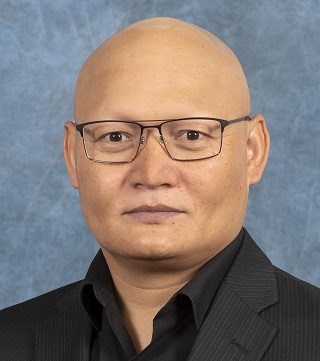 Sam Houston State University
Sam Houston State University
Michael U. Dakeev, Team Lead
Project Overview: At Sam Houston State University (SHSU), we aim to apply the EOP Framework to advance sustainability in engineering by integrating augmented reality (AR), real-world environmental issues, and community engagement. Our goal is to build a scalable, interdisciplinary model rooted in experiential learning that equips students to develop sustainable solutions using AR technology. We will revise courses in Human-Centered Design, Sustainable Systems, and Emerging Technologies to include project-based modules where students create AR tools addressing environmental awareness. These tools—initially deployed at seven visitor centers across Texas and Louisiana—will educate the public on invasive species and sustainable practices. Success will be measured by student outcomes (technical proficiency, environmental literacy), and community impact (visitor engagement, regional awareness). We anticipate broader faculty adoption of AR-based models, enhancing sustainability across campus culture. This project also supports DEIJ efforts by engaging underserved communities, involving first-generation and minority students, and offering multilingual AR content. Sustainability here means preventing ecological harm while empowering communities through innovation. With past AR/VR development success, USDA support, and strong partnerships, this project is highly feasible. We will align with SHSU leadership goals and use data to document success and drive future growth.
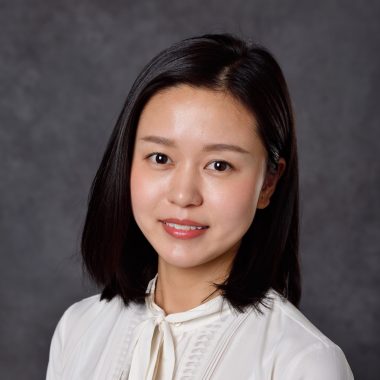
Syracuse University
Xiyuan Liu, Team Lead
Project Overview: Guided by the EOP Framework, we aim to embed sustainability into three key Mechanical Engineering courses spanning sophomore to senior years. ECS326 (sophomore) will focus on sustainable material selection (EOP: Materials), challenging students to evaluate material properties and environmental trade-offs. MAE333 (junior) will incorporate real-world datasets (e.g., energy consumption) to analyze social and environmental impacts using sustainability metrics (EOP: Critical Thinking). The senior capstone (MEE471/472) will require students to design inclusive, regenerative solutions aligned with the EOP Design Area. A transferable, four-year assessment framework—including surveys, portfolios, rubrics, and stakeholder feedback—will track student growth across the curriculum. These changes will empower students to integrate sustainability into technical decision-making and graduate with the skills, mindset, and confidence to tackle complex global challenges as socially responsible engineers.
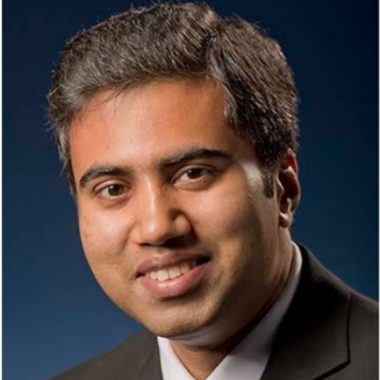 Trine University
Trine University
Gurudutt Chandrashekar, Team Lead
Project Overview: Within the EOP framework, the ideas proposed below will focus on enhancing Skills, Experiences and Behaviors. These ideas will boost Technical Skills related to (a) Design, (b) Materials Selection and (c) Environment Impact Assessment. Furthermore, these ideas will strengthen Leadership Skills by emphasizing (a) Critical Thinking and (b) Communication and Teamwork. Multiple mechanical engineering courses will be required to consider the environmental impact of the design. These considerations must be in terms of (a) energy efficiency of every subsystem and (b) materials choice and its long-term impact on the environment. In addition, life cycle analysis and carbon footprint calculation methods will be introduced in multiple courses. The knowledge gained during the sustainability activities will help the students in thinking about (a) designing energy efficient systems and (b) material recycling to create a sustainable future. The students who are exposed to sustainability practices in the university are most likely to use those in their daily lives and propagate these ideas in their profession.
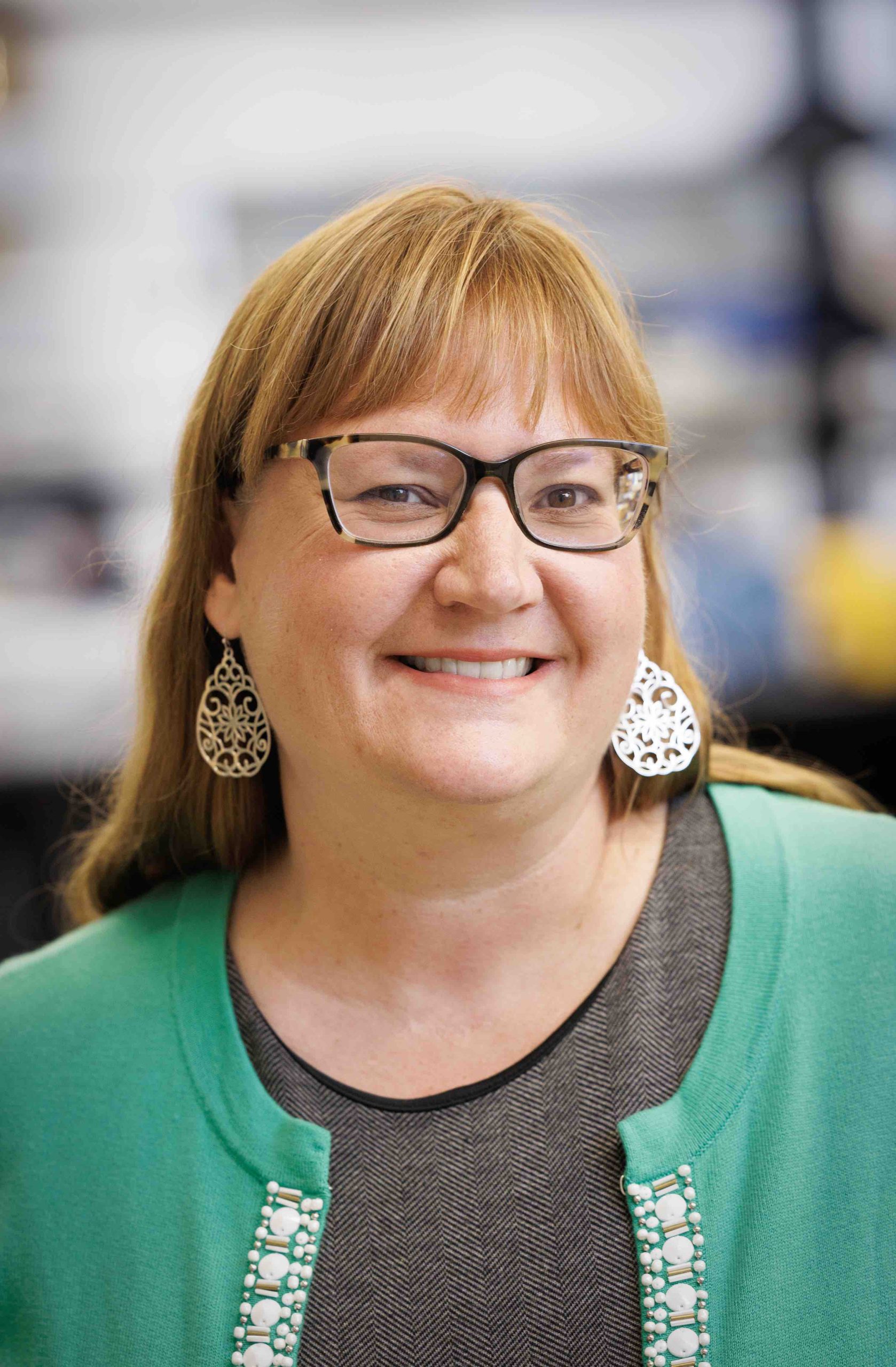
University of Nebraska – Lincoln
Shannon Bartelt-Hunt
Project Overview: The Department of Civil and Environmental Engineering at the University of Nebraska-Lincoln has recently adopted a revised curriculum in which students are engaged in a civil engineering course during each semester of the curriculum. These courses, termed the ‘design spine’ introduce students to civil engineering tools, design thinking and professional skills development. We have adopted the Engineering for One Planet Framework to infuse sustainability across this eight course sequence. In this project, we will further engage with the EOP framework by incorporating it into six additional second and third year required courses within the civil engineering major, each focused on a different disciplinary topic within civil engineering. This will build upon and reinforce students’ sustainability knowledge and provide sustainability instruction within each subdisiplinary area within the department including environmental engineering, geotechnical engineering, civil infrastructure materials, transportation engineering, structural engineering and water resources engineering.
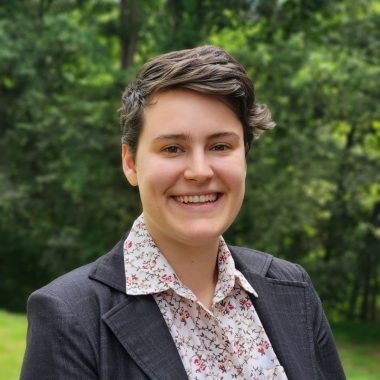
University of North Carolina at Chapel Hill
Alexis Gillmore, Team Lead
Project Overview: We propose to modify an existing first year engineering course, APPL 101 Exploring Engineering, to better fulfill our motto “Engineering for Everyone”. We will a) add learning activities to APPL 101, in which students can develop their life cycle assessment (LCA) skills, b) implement assessments of the four EOP framework core learning objectives (SLOs) for environmental impact measurement + core SLOs 1 & 2 for environmental literacy and c) train course faculty and TAs to assess these SLOs based on the learning activities. Our work will create a model to improve student skills in all facets of the EOP framework through other courses in our 4-year curriculum. This course also qualifies for general education credit, so many of the students in the class are from non-engineering majors at UNC. The course enrolls >130 students per semester. As such, changes to this course are uniquely positioned to educate engineers and non-engineers alike about the role of engineering in creating a sustainable society.
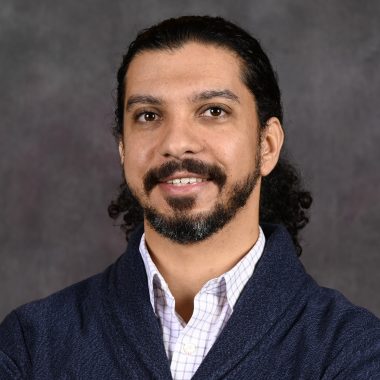
University of Pittsburgh
Amr Mahmoud, Team Lead
Project Overview: To promote sustainability in engineering education, we propose using the EOP (Engineering for One Planet) Framework to develop six 2-week modules focused on Green Electronics and Sustainable Software Development. These modules will be integrated into three core Computer Engineering courses—Electronic Circuit Design Lab, Algorithms for Big Data, and Senior Design—reaching approximately 150 students annually across sophomore to senior levels. The curricular changes will align with EOP core elements such as Design, Environmental Impact Assessment, Environmental Literacy, and Systems Thinking. Success will be measured by increased student awareness and application of sustainability in both programming and circuit design. Students will be encouraged to prioritize energy efficiency and environmental impact, not just functionality. Faculty and the broader institution will also benefit through a mini-workshop introducing ECE faculty to the EOP framework, fostering broader adoption. Long-term, the initiative will prepare students for roles in the growing green-tech industry and lay the groundwork for larger grants and a school-wide sustainability curriculum, complementing efforts like the Pitt Sustainability Plan and existing MCSI programs.
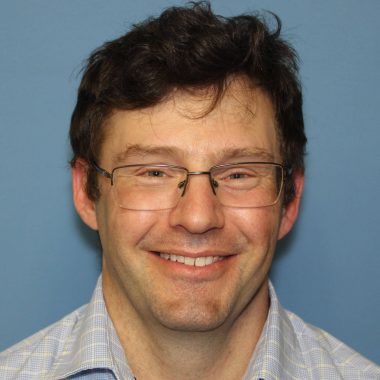
University of Southern Indiana
Ryan Integlia, Team Lead
Project Overview: Our sustainable smart systems initiative for accessible and inclusive applications in geriatrics integrates the EOP Framework into engineering curricula through hands-on modules focused on IoT, AI, VR, and/or gamified robotics. We propose developing project or lab-based curriculum units that address critical sustainability challenges: autonomous greenhouses for food security in underserved areas and smart nursing technologies to enhance healthcare for aging populations. Students will design sustainable solutions across applications, including fall prevention, gait analysis, and/or assisted mobility. By emphasizing sustainable design principles throughout the engineering lifecycle, students will develop technical competence while understanding the environmental, social, and economic impacts of their work. Our modular, open-source approach ensures these resources can be adopted by other institutions, maximizing impact beyond our campus. This initiative builds upon our existing DEIJ efforts and Sustainable Engineering minor, extending their reach through projects explicitly serving marginalized communities. Success will manifest as students creating solutions that address real community needs while demonstrating sustainability literacy. Community partners will benefit directly from technologies that improve food access and elder care, creating a mutually beneficial educational ecosystem that reinforces the interconnectedness of engineering decisions and societal outcomes.
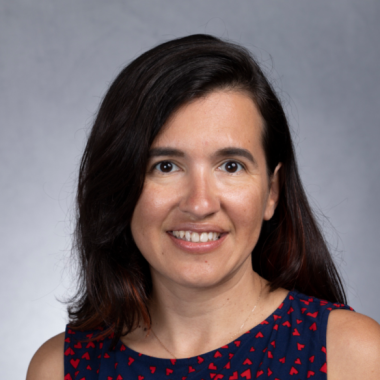
University of Texas at Tyler
Carla Lacerda, Team Lead
Project Overview: We aim to make our region a pioneer in sustainable energy exploration, given proper engineering training, support from local industries and community mindset. What we envision to accomplish with the EOP Framework is a year-to-year integration of sustainability principles, i.e., critical thinking and teamwork (years 1 and 2), design and materials selection (year 3), environmental impact and business literacy (year 4). Our current and future industrial partnerships will focus on sustainable facility design and sustainable processing, particularly focusing on reduction of emissions. We believe these goals will impact all around us and those who may choose to become chemical engineers. Student success and retention in our program, as well as alumni employment, will serve as long-term metrics for program evaluation. Community involvement and outreach activities will serve as metrics of sustainable engineering programs within the College of Engineering.
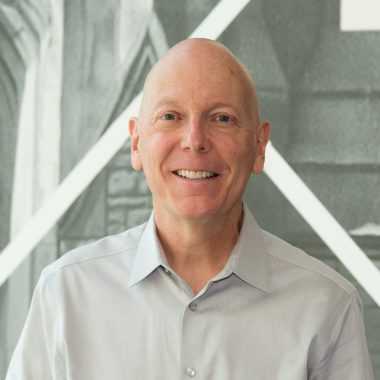
University of Toledo
Glenn Lipscomb, Team Lead
Project Overview: the College of Engineering seeks to develop an entrepreneurial student mindset through its participation in the Kern Entrepreneurship Network (KEEN) program. We propose leveraging KEEN resources to instill an “entrepreneurial mindset driven by sustainability challenges”. The College-wide first-year Orientation class will be modified. The course currently includes a department-specific design project. This will be changed to an entrepreneurial project that requires developing an investment pitch for a new process/business that addresses a sustainability challenge. Such a project pursues outcomes from the EOP framework related to core technical skills (design & environmental impact) and knowledge/understanding (responsible business & economy). Moreover, students can compete in the KEEN Innovation Challenge (KIC), which gives monetary awards to the best team presentations for further business plan development. These awards will be supplemented with funds from this proposal.
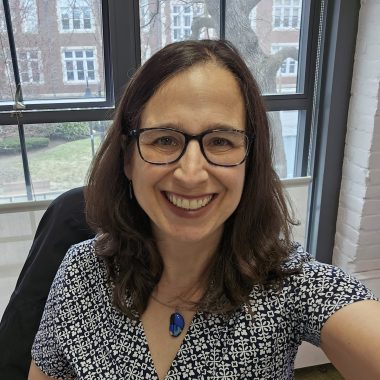
Worcester Polytechnic Institute
Corey Dehner, Team Lead
Project Overview: Our team aims to use the EOP framework to launch a robust Environmental Leadership Program (ELP) for STEM students at Worcester Polytechnic Institute. The EOP-MGP will support multiple components of the ELP. First, we will develop a series of leadership workshops for students with a demonstrated interest in sustainability. These workshops will bring together students from different majors and years in school and facilitate an environmentally literate, holistic, systems approach to STEM research. As part of the ELP, each student will create and iterate an individual environmental leadership plan (IELP) to help them thoughtfully integrate environmental leadership into their education, courses, and career. The IELP will help students articulate their professional “why,” identify relevant UN Sustainable Development Goals, and assess their leadership strengths and growth areas. ELP students will have access to peer and professional mentors to help them achieve their IELP goals. Through this Environmental Leadership Program, students will be empowered not only to lead through an environmentally literate lens, but also to inspire their peers and faculty to integrate sustainability into STEM education, research, and practice.
